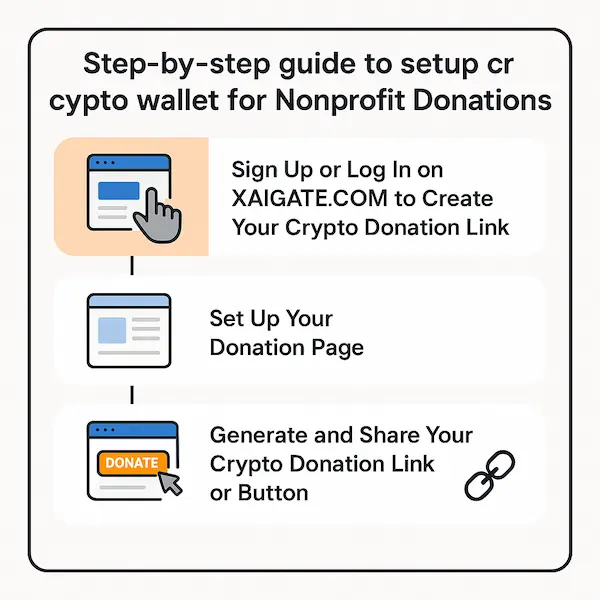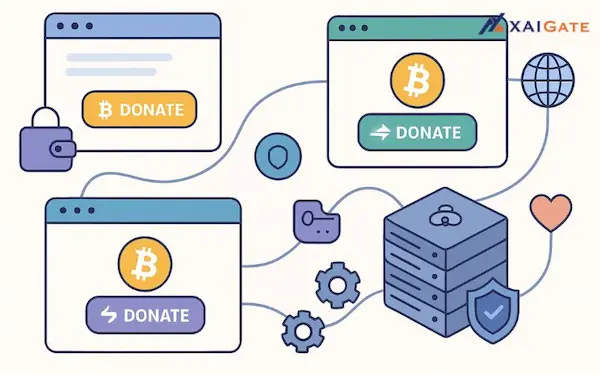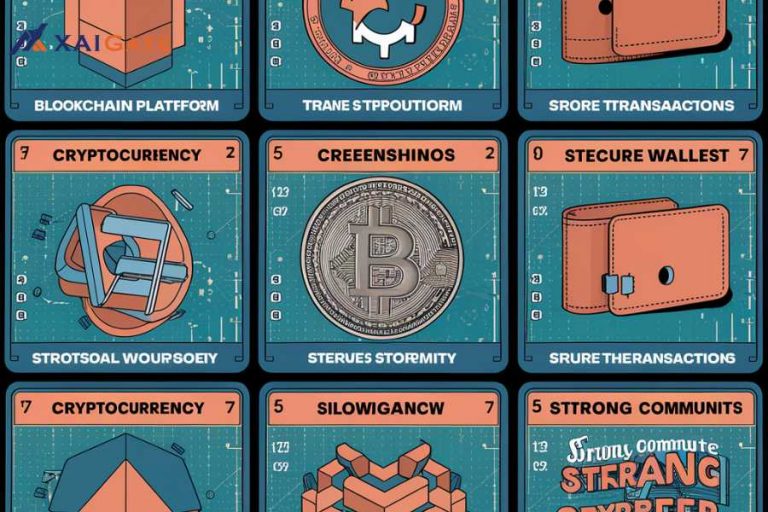An open source universal crypto wallet is a crypto wallet has a source code that is freely used and can be audited. The next development in cryptocurrency wallets is the universal wallet. Let’s call the open source universal crypto wallet is universal wallet. Although they are not as user-friendly as contemporary Internet browsers, universal wallets can be considered the browsers used to traverse on blockchain. Recently, open source universal crypto wallets have become more popular across a variety of industries. Let’s then examine what Open Source Universal Crypto Wallet has to offer.

Contents
- 1 What Is a Crypto Wallet?
- 2 Open Source Universal Crypto Wallet
- 3 Why Developers Prefer Open Source Universal Wallets
- 4 Vulnerabilities of Crypto and Universal Wallets
- 5 Transaction Types of Universal Wallets
- 6 Challenges and Risks of Open-Source Crypto Wallets
- 7 Conclusion
- 8 FAQs – Open Source Universal Crypto Wallets
What Is a Crypto Wallet?
Digital wallets were around long before blockchain technology. A new kind of digital wallet called a “crypto wallet” offers a safe way to access and use blockchains for transactions.
As cryptocurrencies gained popularity, software programs known as “crypto wallets,” which are primarily used for handling coins, became more significant. About 200 distinct cryptocurrency wallets were in operation as of 2019, managing over 1600 cryptocurrencies that were owned and traded by just over 75 million wallet users.
Even if these numbers are approximations, they show how widely used cryptocurrencies and crypto wallets have become in a short period of time. Wallets allow Bitcoin owners to transfer their cryptocurrency and maintain a record of their amount.

Open Source Universal Crypto Wallet
Universal Crypto wallets that can store and manage various IDs and credentials, including identity cards and passports, in addition to cryptocurrencies and tokens are known as universal wallets. They are a crucial tool for creating and maintaining identities, credentials, reputation ratings, and privacy because of their adaptability.
It is reasonable to predict that, given the extent of universal wallets, their use will continue to grow quickly as more assets become digital.
The growing adoption of specialized token standards, like Ethereum’s ERC-1056, ERC-780, ERC-725, ERC-734, and ERC-735, will support this expansion by enabling universal wallets that give users control over various identifiers and credentials, as well as cryptocurrencies and other digital assets.
Comparison Table: XAIGATE vs. Traditional Open-Source Universal Crypto Wallets
| Criteria | XAIGATE (Open-Source Compatible Payment Gateway) | Traditional Open-Source Wallets |
|---|---|---|
| Purpose & Use Case | Designed for both personal and business use, with built-in payment processing and e-commerce integration. | Primarily aimed at personal asset storage and transfers; business use requires heavy customization. |
| Multi-Chain Capability | Supports thousands of tokens across multiple major blockchains, ready for immediate cross-chain payments. | Varies by project—many support only one or a few chains without native cross-chain functionality. |
| Customization | Offers open API and modular plugins that can be adapted to brand style, checkout flow, and payment logic. | Fully modifiable source code, but changes require deep technical skills and development resources. |
| Security & Control | Non-custodial with regular security updates, merchant-grade encryption, and audit-ready architecture. | Also non-custodial; security depends on community updates and the project’s maintenance activity. |
| Ease of Integration | Plug-and-play with major online store platforms; minimal coding required. | No native business integration; requires manual setup and technical development. |
| Support & Maintenance | 24/7 commercial support plus documentation for quick troubleshooting. | Community forums and GitHub issues; no guaranteed response times. |
Why Developers Prefer Open Source Universal Wallets
Open source universal crypto wallets are increasingly favored by developers due to their complete control and customization capabilities. Unlike proprietary wallets, open-source solutions allow developers to access and modify the source code, enabling them to tailor functionalities to specific use cases or build features that align with their project’s needs.
Transparency is another key reason. With full visibility into the codebase, developers can verify the wallet’s security and eliminate backdoors, which is essential for projects requiring high trust and auditability. This level of clarity is especially vital for decentralized applications (dApps) operating in DeFi and Web3 ecosystems.
Moreover, these wallets often come with developer-friendly SDKs and APIs, making it easy to integrate them into existing blockchain infrastructures. Whether building on Ethereum, Solana, or other chains, open source universal wallets provide a flexible and interoperable foundation for multi-chain crypto applications.
Comparison Table: XAIGATE vs. Standard Open-Source Universal Crypto Wallets (2025)
| Feature | XAIGATE – Open-Source Compatible Gateway | Standard Open-Source Wallets |
|---|---|---|
| Primary Function | Combines crypto storage with built-in payment processing and merchant tools for e-commerce and online platforms. | Focused on storing and sending crypto; payment features require separate integration or add-ons. |
| Blockchain & Token Support | Supports 9,800+ tokens across major blockchains including BTC, ETH, BNB Chain, Solana, and Polygon. | Coverage varies—some support multiple chains, others focus on just one ecosystem like Bitcoin or Ethereum. |
| Integration for Businesses | Pre-built plugins and APIs for Shopify, WooCommerce, Magento, and custom sites; minimal setup time. | No native business plugins; requires technical development to connect with sales platforms. |
| Security Approach | Non-custodial with merchant-grade encryption, regular audits, and update cycles for compliance and stability. | Also non-custodial, but updates depend on the pace and activity of the open-source community. |
| Customization Options | Flexible configuration for checkout design, accepted coins, and payment flow without heavy coding. | Fully customizable if you have coding skills, but changes can be time-consuming. |
| User & Technical Support | 24/7 dedicated support plus clear documentation for developers and merchants. | Relies on community help via forums or GitHub; no guaranteed response time or SLA. |
Vulnerabilities of Crypto and Universal Wallets
The safety and security of universal wallets are crucial given their increasing use as entry points for communication and user identification. It is necessary to recognize the various potential attacks against universal wallets and put appropriate defenses in place.
Since universal wallets serve as the main entry point for all users to conduct digital transactions, security measures must be sufficiently developed to manage important transactions.
Additionally, users who are not fully aware of how to use universal wallets are vulnerable, which can result in careless use that eventually creates an attack vector. Therefore, specifications that make universal wallets both safe and easy to use can aid in developing usage patterns that align with the security features of the wallet. This would suggest that a methodical approach is required.
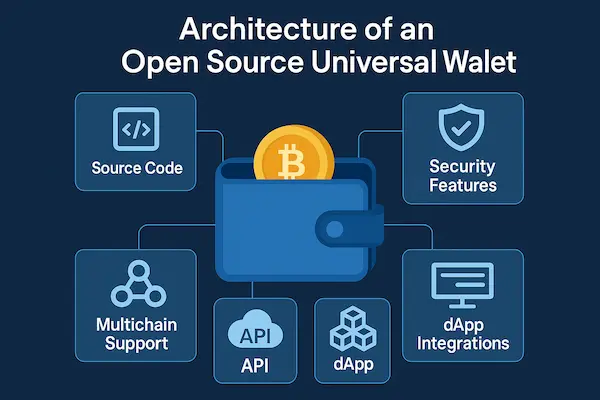
Transaction Types of Universal Wallets
Like their predecessors, universal wallets will undoubtedly be utilized for cryptocurrency trading. Universal wallets are being utilized to develop new payment methods, such charging services straight from universal wallets, even if cryptocurrencies are still mostly traded against other cryptocurrencies and aren’t used as much in exchanges with fiat currencies.
The utilization of digital assets as a component of the developing token economy is giving rise to other novel forms of transactions. Since these tokens are frequently linked to a value and exchanged like assets, they act as a middleman. It is clear that universal wallets will serve as the entry point for managing new kinds of transactions, even though the legal status of tokens is still up for debate in the majority of states.
Comparison Table: XAIGATE vs. Conventional Open-Source Universal Crypto Wallets
| Criteria | XAIGATE – Business-Ready, Open-Source Compatible | Conventional Open-Source Wallets |
|---|---|---|
| Core Purpose | Designed for both individuals and businesses, offering secure storage plus instant payment processing for commerce. | Primarily built for personal crypto storage and transfers; business use requires custom work. |
| Blockchain Coverage | Supports thousands of tokens across multiple major blockchains with seamless multi-chain transactions. | Varies widely; some support only one or two chains, limiting flexibility for diverse portfolios. |
| Integration Capability | Comes with ready-made plugins and API for e-commerce platforms like WooCommerce, Shopify, and Magento. | No native e-commerce integration; requires manual coding to connect with online stores. |
| Security & Compliance | Non-custodial, merchant-grade encryption, routine audits, and compliance features like optional KYC/AML modules. | Also non-custodial, but security updates and compliance tools depend on community contributions. |
| Ease of Setup | Quick installation with minimal technical skill needed; clear guides and direct support available. | Setup varies; often requires technical know-how and familiarity with blockchain infrastructure. |
| Support Model | 24/7 professional support plus detailed developer documentation for troubleshooting and optimization. | Relies on community forums and open repositories; support response time is unpredictable. |
Challenges and Risks of Open-Source Crypto Wallets
Despite their many advantages, open-source crypto wallets come with inherent risks—especially when used without due diligence. One of the biggest concerns is the potential for malicious code contributions from the community. If not properly reviewed, these can introduce backdoors or vulnerabilities into the wallet software.
Another issue is the lack of centralized support. Unlike commercial wallet providers that offer customer service, most open-source wallets rely on community forums or GitHub discussions, which may not provide timely or guaranteed assistance—especially for beginners or businesses needing urgent support.
Additionally, managing an open-source universal crypto wallet often requires a strong understanding of technical processes, such as setting up local environments, signing transactions manually, or configuring multi-chain settings. Without adequate knowledge, users risk mismanagement of assets or exposure to phishing and social engineering attacks.
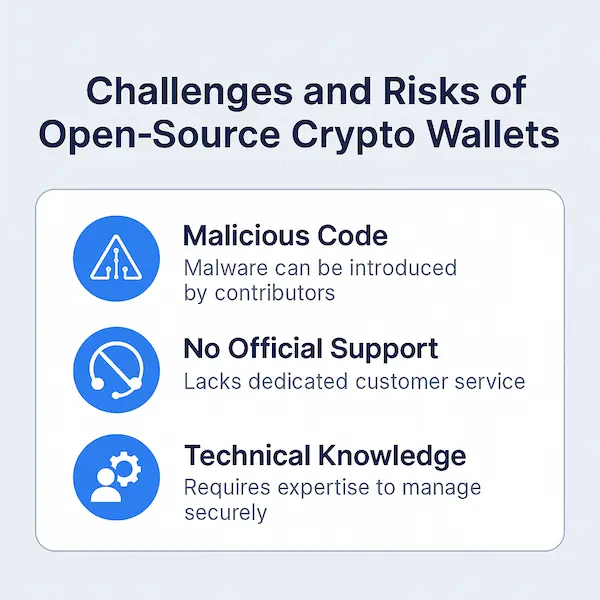
Conclusion
Open Source Universal Crypto Wallet, which can be used by any (more or less intelligent) automated entity, will be crucial to the modern digital revolution of managing and using digital assets and identities. The wallet serves as a crucial gateway for communication with other systems, including other wallets, people, and services. This communication can occur automatically through a dialogue between machines and their wallets or manually between humans.
If you’re looking for full transparency, developer-level customization, and zero platform lock-in, choosing an open-source crypto payment gateway plugin is the smartest move for future-proofing your business. Unlike closed systems, open-source plugins offer unmatched flexibility, security audits by the community, and seamless integration with major CMS platforms like WordPress or WooCommerce.
FAQs – Open Source Universal Crypto Wallets
1. What is an open source universal crypto wallet?
An open source universal crypto wallet is a decentralized digital wallet whose source code is publicly available. It allows users to store, send, and receive cryptocurrencies across multiple blockchains with full transparency and customization options.
2. What are the benefits of using an open source wallet?
Benefits include full control over private keys, transparency, enhanced privacy, and the ability to audit or customize the wallet’s functionality. It’s ideal for developers and privacy-conscious users.
3. Are open source crypto wallets safe?
Open source wallets can be secure if maintained properly. However, users must be cautious of fake or tampered versions and should only download from verified sources or GitHub repositories. Regular code audits are recommended.
4. Which blockchains are typically supported by universal crypto wallets?
Most universal wallets support Ethereum, Bitcoin, Binance Smart Chain, Solana, and other EVM-compatible or Layer 1 blockchains, depending on the implementation.
5. Can I use open source wallets for DeFi and NFTs?
Yes. Many open source wallets support DeFi apps and NFT interactions, especially those that are Web3-enabled and integrate with browser extensions or mobile dApps.
6. Is it difficult to set up and use an open source crypto wallet?
It depends. Some wallets offer user-friendly interfaces, while others require technical skills, especially if installed from raw code. Developers typically prefer these wallets due to customization flexibility.
7. How is an open source wallet different from a custodial wallet?
Open source wallets are non-custodial, meaning the user holds their private keys. Custodial wallets are managed by third parties (like exchanges), where users don’t directly control their crypto assets.
8. Can businesses use open source universal wallets?
Yes. Businesses often use open source wallets to integrate crypto payments, build secure dApps, or manage multi-chain assets with greater transparency and independence.
XAIGATE may also be found on GitHub, and X (@mxaigate)! Follow us!


